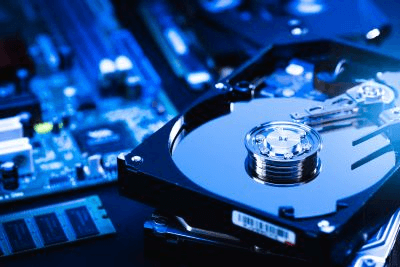What Is a Disk Drive?
 A disk drive is a data storage device consisting of a disk for storing information and a head for reading and writing this information. Disk drives are classified into magnetic disk drives (like floppy and hard disks) and optical disk drives (such as CDs). Internal disk drives are built into the computer, while external disk drives connect via interfaces like USB.
A disk drive is a data storage device consisting of a disk for storing information and a head for reading and writing this information. Disk drives are classified into magnetic disk drives (like floppy and hard disks) and optical disk drives (such as CDs). Internal disk drives are built into the computer, while external disk drives connect via interfaces like USB.
Uses of Disk Drives
Disk drives are crucial in computer systems for storing data and programs. Magnetic disk drives, offering high-speed access, are commonly used as boot disks for operating systems. SSDs (solid-state drives) are increasingly favored for their faster access speeds. Optical disk drives, with slower access speeds, are used for data storage, backup, and distribution of multimedia content.
Principles of Disk Drives
Magnetic disk drives use magnetism for writing and reading, whereas optical disk drives use lasers. Magnetic drives write information by magnetizing a magnetic layer and reading it by detecting magnetic field changes. Optical drives use a spindle motor to rotate the media and a laser beam to read information from the reflected light. CDs and DVDs utilize a red laser, while Blu-ray discs use a blue-violet laser with a shorter wavelength, allowing for higher storage capacity.
Other Information on Disk Drives
1. Disk Drive Failures
Failures in disk drives, often due to their mechanical parts or high precision, can sometimes be resolved by cleaning the pickup lens. Disc media defects like scratches or stains can also cause read issues. Internal physical failures require specialist repair due to the complexity of the drive’s structure.
2. Unusual Noise From Disk Drive
Noise from a disk drive may be due to improper installation or disk insertion. Securing the drive properly inside the PC and correctly inserting the disk can often mitigate noise issues. Eccentric disk media or attached labels can also cause temporary noise.
3. Differences Among Optical Disk Drives
Optical disk drives like Blu-ray use blue-violet lasers with shorter wavelengths, enabling them to store more data than DVDs. These drives vary in terms of writeable and read-only capabilities.